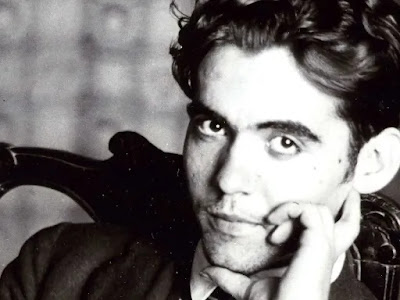The ninth of October is a big celebration for the Valencian Community in Spain, where we live. It marks the day in 1238 when good king James I of Aragon liberated Valencia from the cruel oppression of the Moors. Had we forgotten, we’d have had a reminder early in the morning from the distant sound of firecrackers being let off.
 |
| Celebrating the Valencian day by carrying the Valencian flag through the streets |
It may be that this joy from what to me seems merely to be racket, is associated with a key event which, legend has it, occurred during James I’s campaign to take Valencia from the Muslims. An Arab prophet had apparently declared that the city would remain in the hands of his people as long as the lord’s bat survived. One night, however, the Christians encamped outside the city that they were keeping under siege, discovered that a bat had made its home on the crest of the king’s tent. He ordered that it be left in peace and treated with reverence.
Sometime later, again at night, while the Aragonese troops were sleeping, the king heard a loud drumming noise. He awoke his men and the alert was sounded. Rightly, it turned out, as the Arabs from besieged Valencia had made a sortie and were about to attack the camp. King James’s men being ready for them, they inflicted serious losses on the Arabs and forced them to retreat to the city.
“Who sounded the drum?” the king wanted to know.
To his astonishment it turned out to have been the bat, by flinging itself repeatedly against the sides of the king’s tent.
Perhaps that’s what the Valencians celebrate when they enjoy the rhythmic detonations of the firecrackers. I hear only din. They hear a distant echo of the bat’s warning all those centuries ago. Something still commemorated in the crest of the city and even the logo of the Valencia football club.
 |
| A bat dominates the Valencia football club logo |
They inflicted their cultural values on the good people of Christendom, in such barbaric acts as decorating the palace in the village of Anna.
 |
| Cultural tyranny: inside the Arab palace in the town of Anna |
They took advantage of good Christian water by forcing it to flow through unnatural irrigation channels into the fields, using methods which even Christian farmers continue to impose on themselves to this very day.
 |
| Arab irrigation channel at Almiserà, Valencia A legacy of the yoke of Moorish rule |
Strangely, some people apparently do. Or did. One of the finest Spanish poets and playwrights, a man of massive international reputation, Federico García Lorca, said in 1936 that the expulsion of the Moors was “a very bad moment… what was lost was an admirable civilisation, a poetry … an architecture and a subtlety that were unique in the world”.
On 18 August of that same year, he was murdered by nationalists who knew better than to say things so subversive of national values. To be fair, even more than his views on the Moors, the fact that Lorca was gay probably made it all the more certain that he would meet a swift, violent end at the hands of an insurgency of the far right. His killers threw the body into a grave whose location has to this day still not been discovered.
Oh, well. The ninth of October is just a pretext for a party these days, anyway. And there’s not so much to get joyful about in our times to turn down any opportunity the calendar gives us.
Though I prefer to celebrate a long way from the firecrackers. And remembering Federico García Lorca. A man – dare I say this? – rather more to my heart than even good king James I.
 |
| Lorca, who liked the Arabs in Spain, and was terminally disliked by Spanish nationalists |
No comments:
Post a Comment